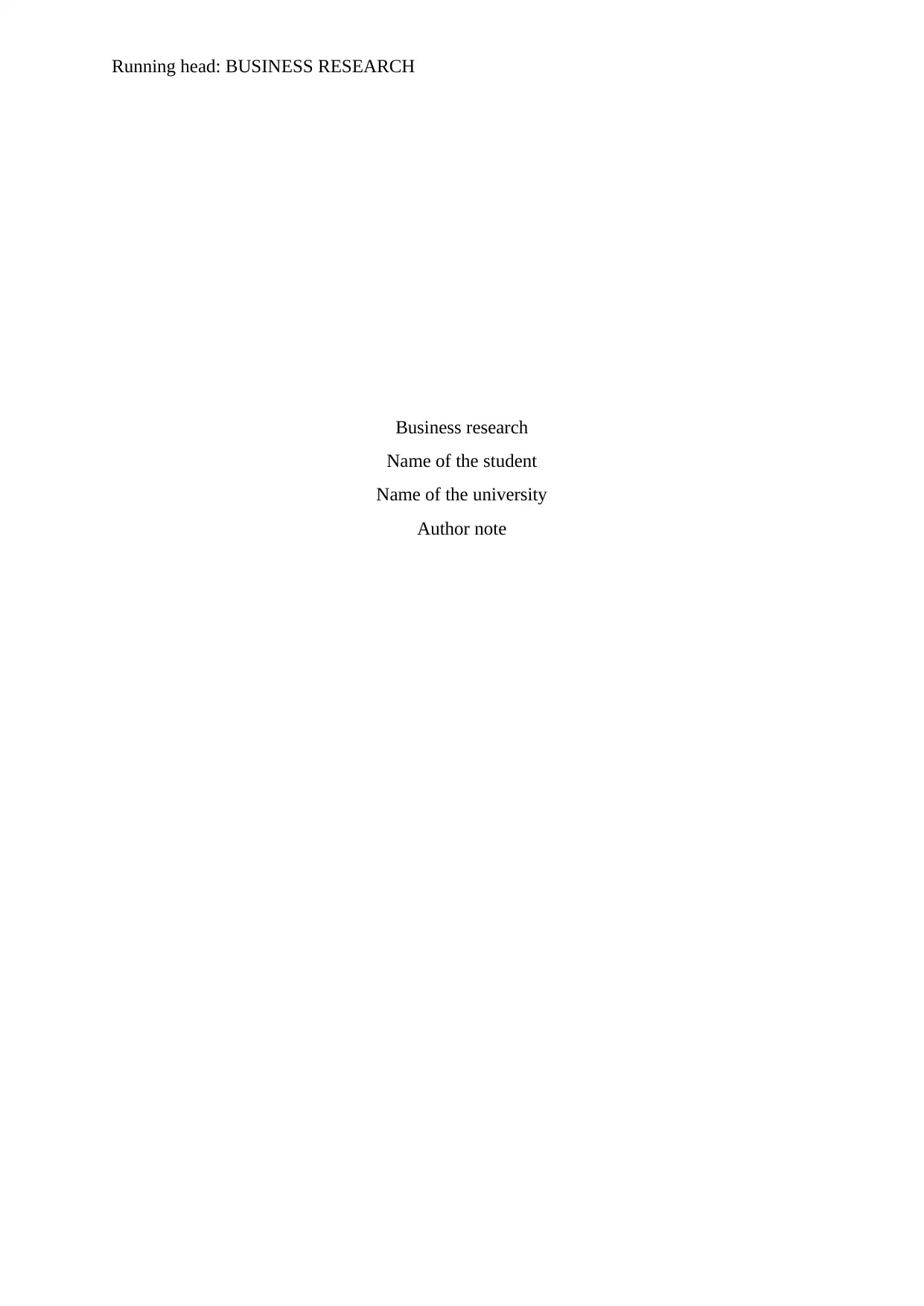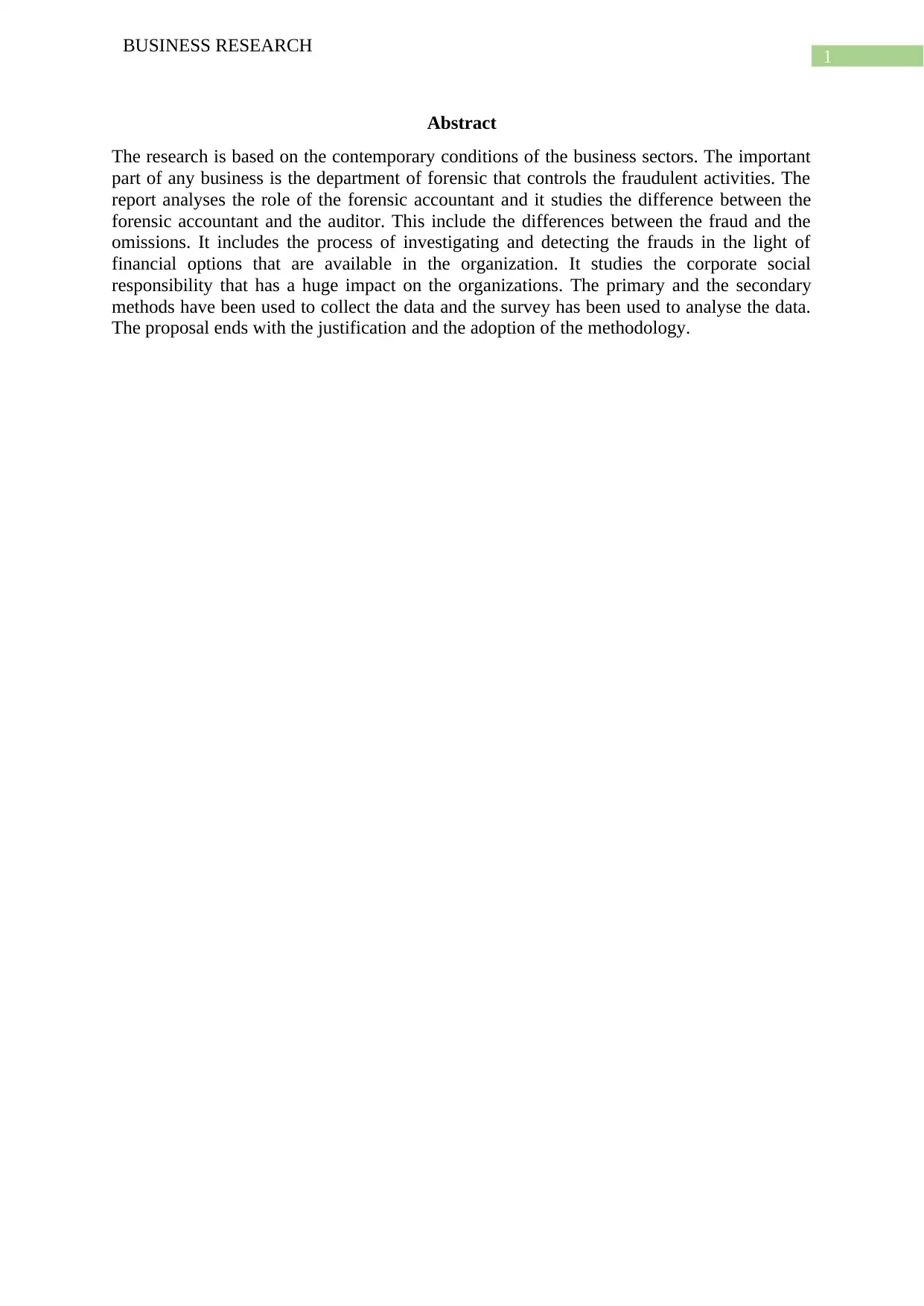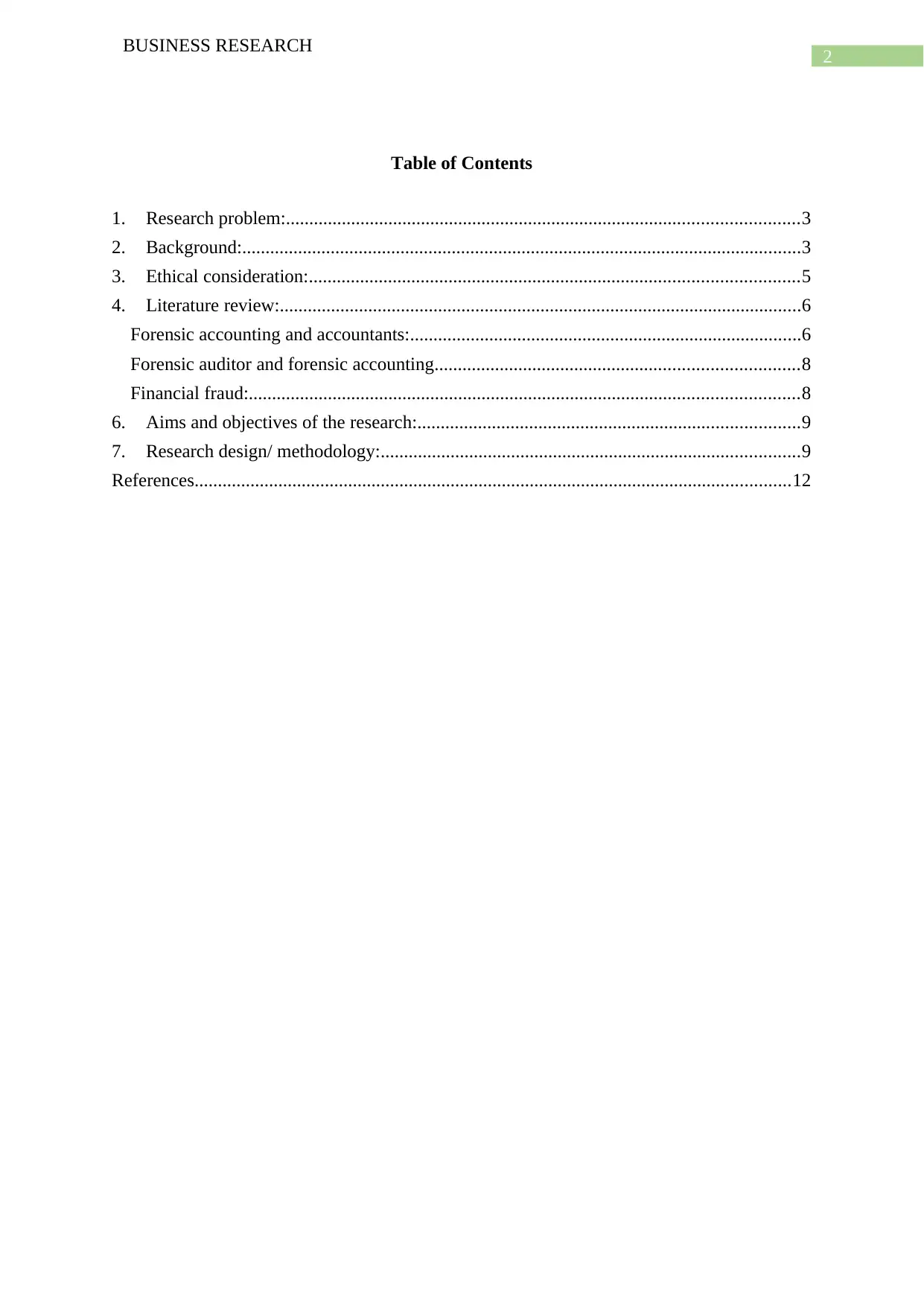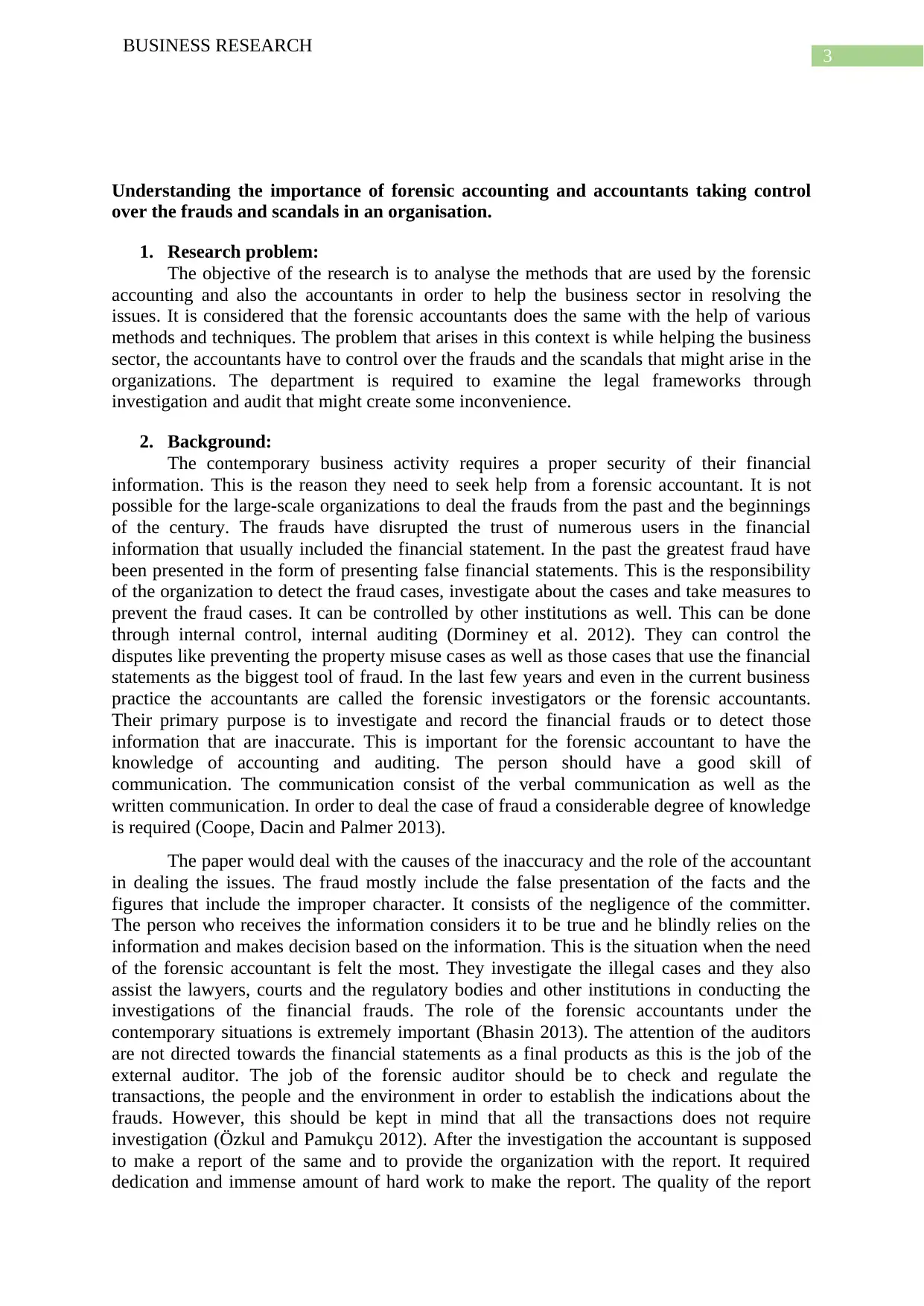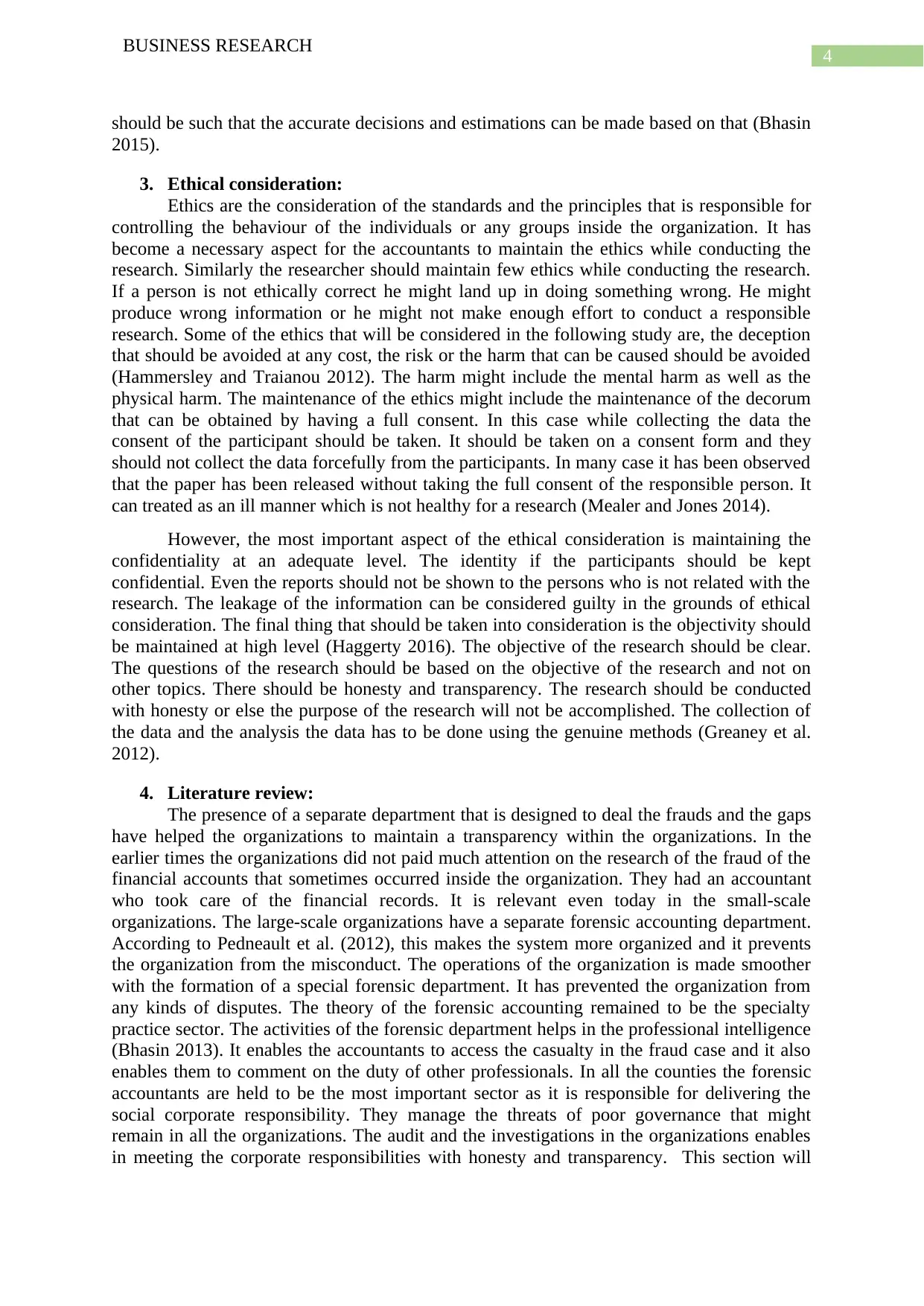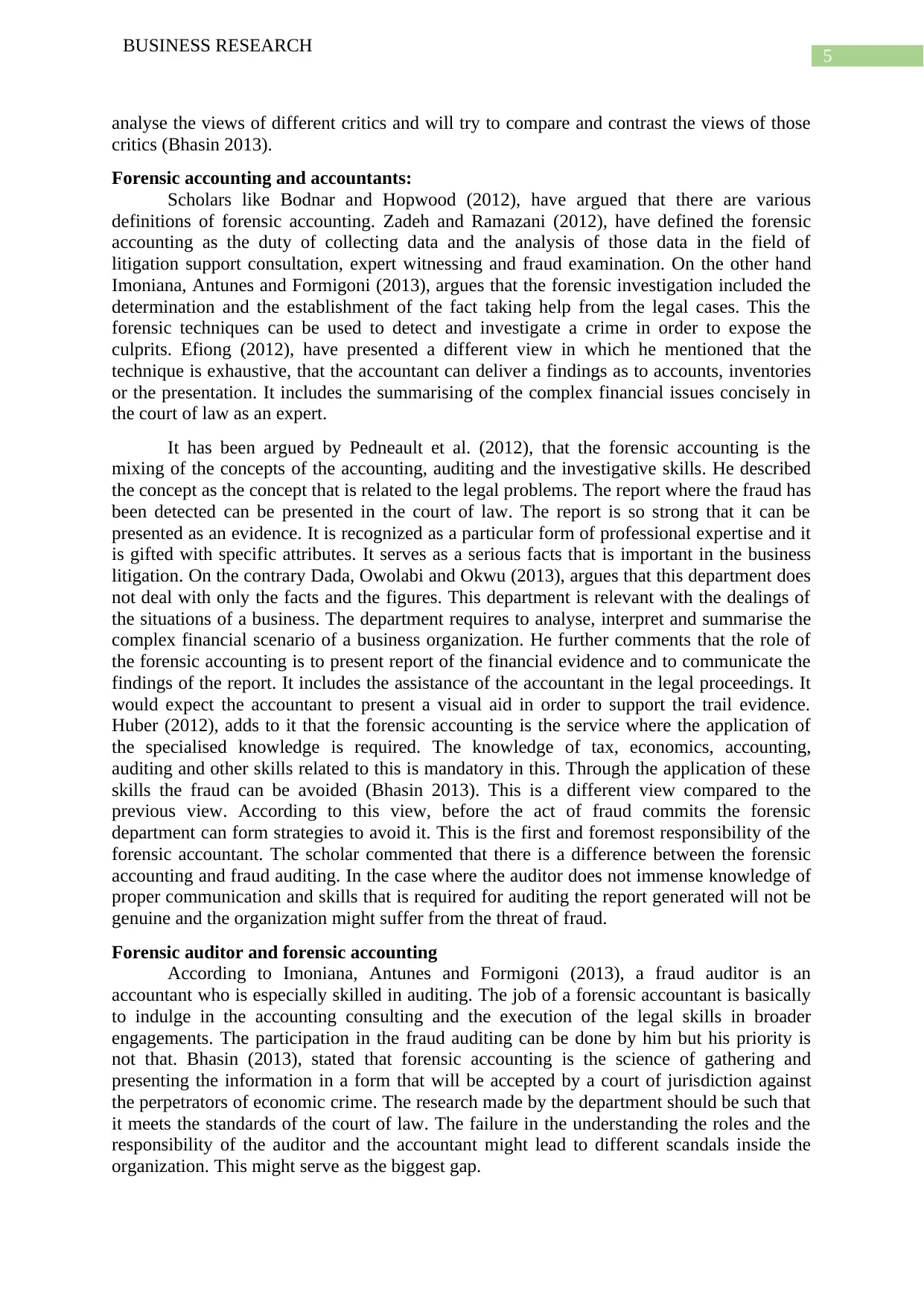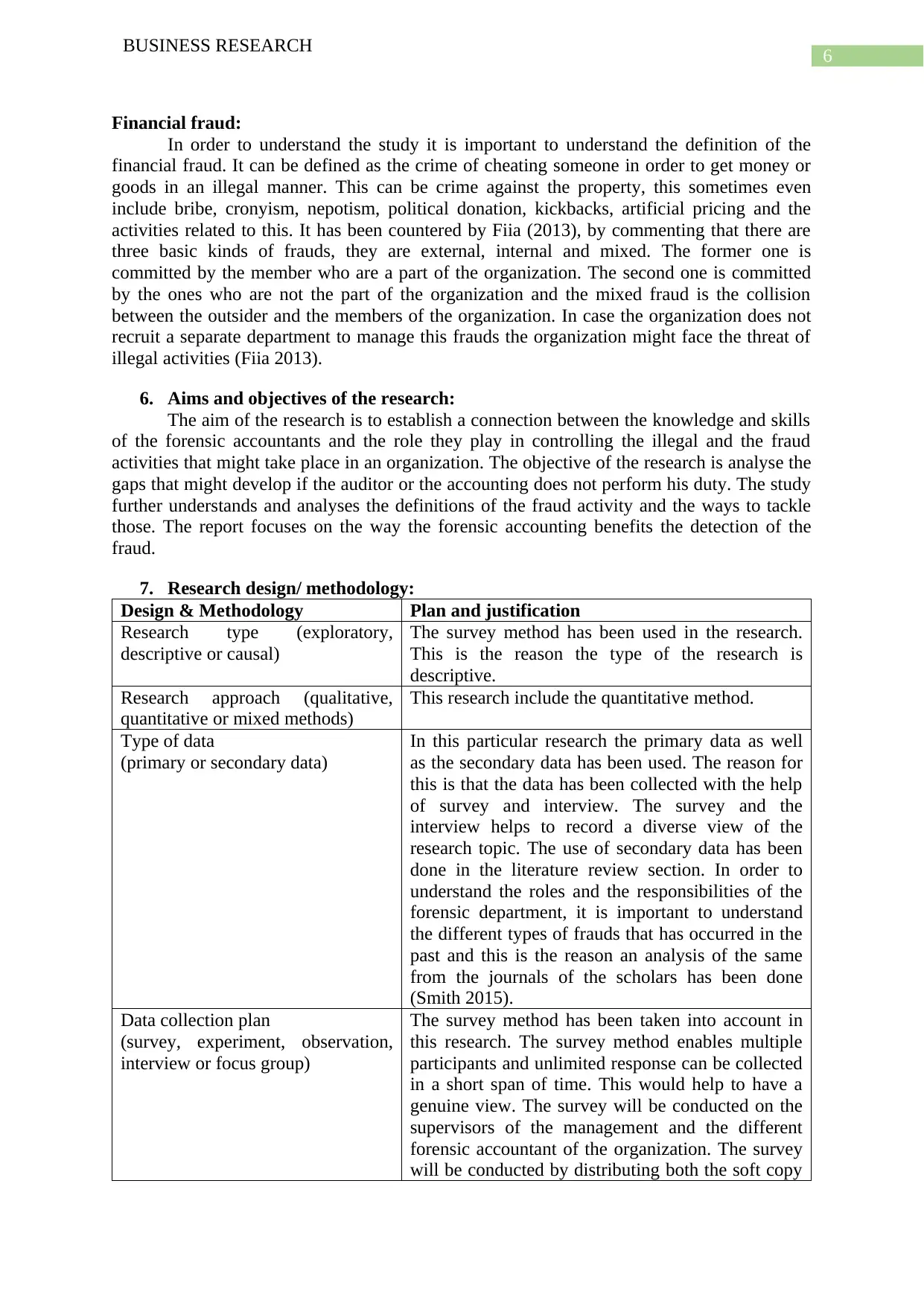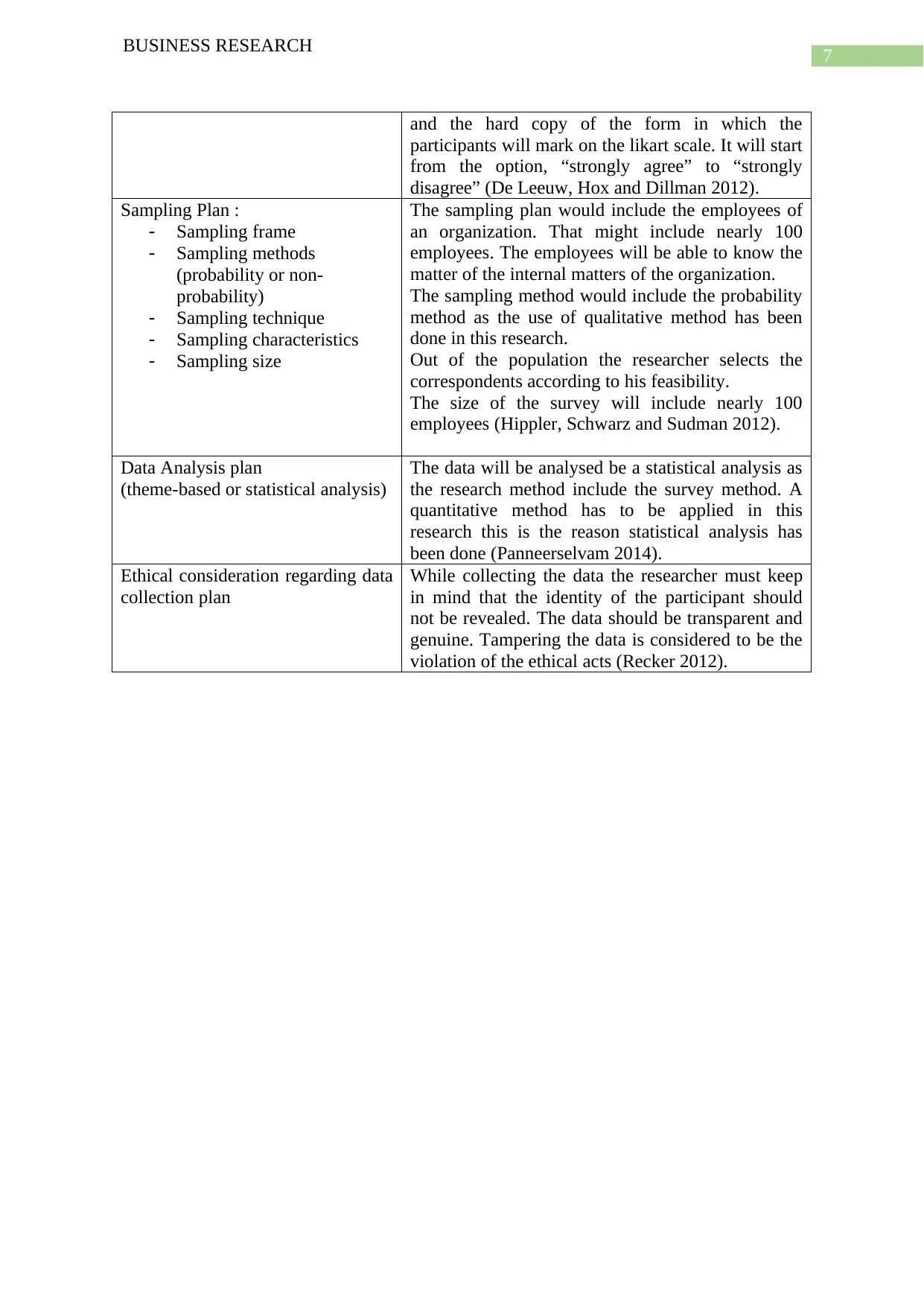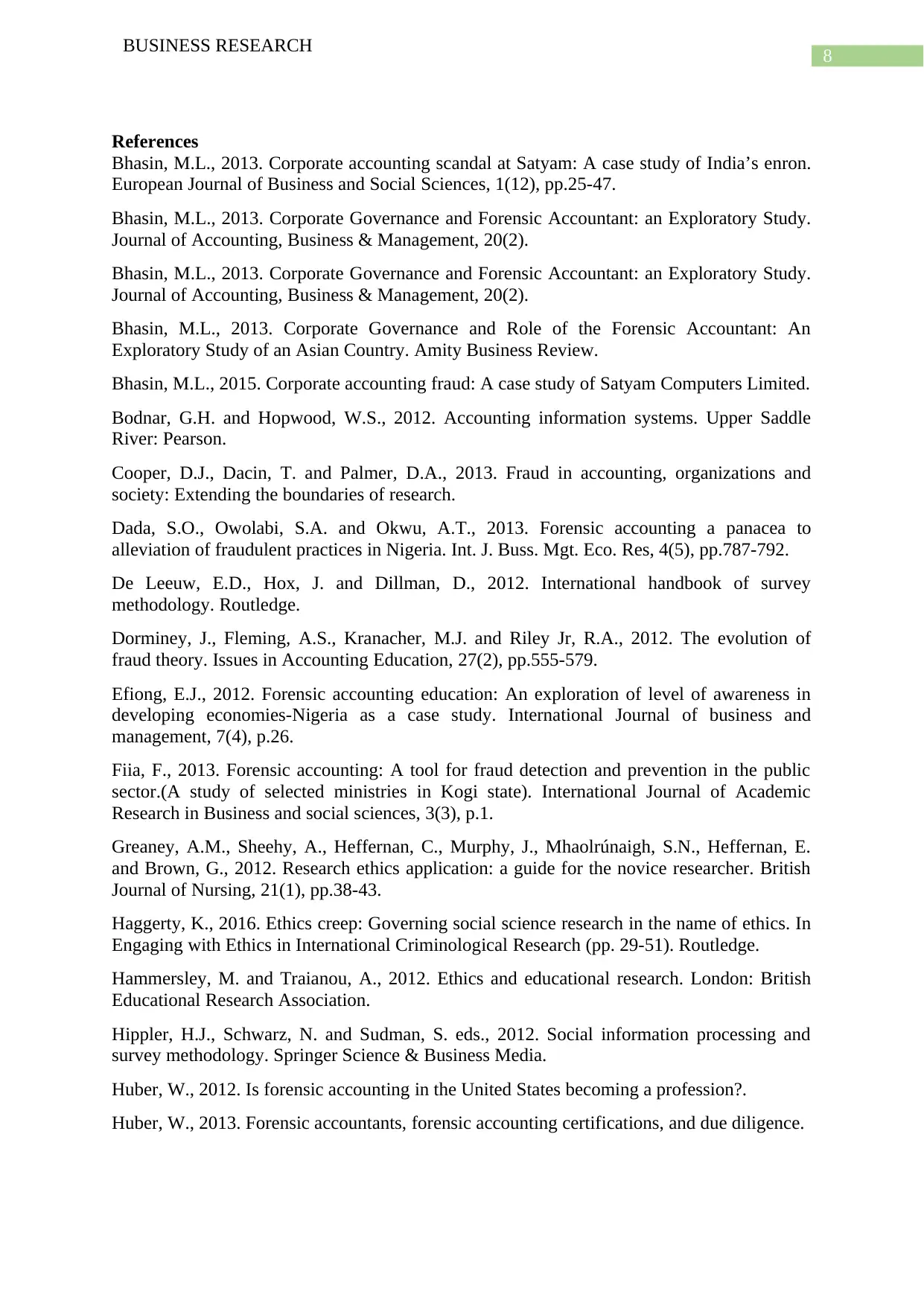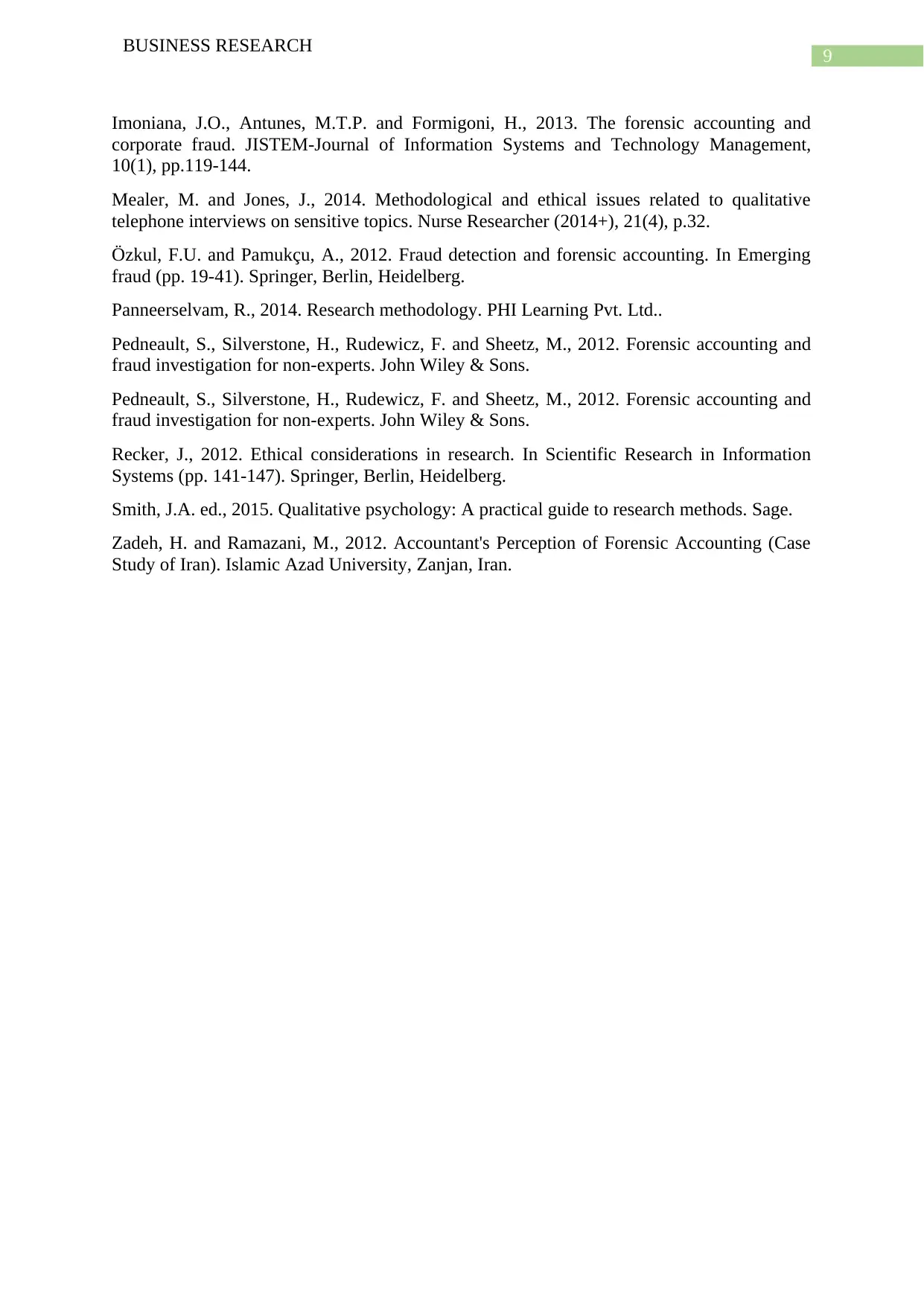Understanding the Importance of Forensic Accounting and Accountants in Controlling Fraudulent Activities in Organizations
VerifiedAI Summary
The research is based on the contemporary conditions of the business sectors. The important part of any business is the department of forensic that controls the fraudulent activities. The report analyses the role of the forensic accountant and it studies the difference between the forensic accountant and the auditor. This include the differences between the fraud and the omissions. It includes the process of investigating and detecting the frauds in the light of financial options that are available in the organization. It studies the corporate social responsibility that has a huge impact on the organizations. The primary and the secondary methods have been used to collect the data and the survey has been used to analyse the data. The proposal ends with the justification and the adoption of the methodology.
![[object Object]](/_next/static/media/star-bottom.7253800d.svg)
![[object Object]](/_next/static/media/star-bottom.7253800d.svg)
